USA
Mosques in New York City are struggling to house and feed migrants this holy month of Ramadan. An imam in the Bronx mosque has turned the home that houses his mosque into a makeshift shelter for migrants, many of them men from his native Senegal.
As the country’s latest immigration surge enters its third year this spring, some Islamic institutions in the Big Apple say they’re struggling to keep up with the needs of the ever-growing migrant population.
The challenge has become all the more pronounced during Ramadan, which began March 11 and ends next week.
Islamic leaders say they’ve stepped up their appeals to members for donations of money, food, clothing and other supplies in recent days.
Many have opened their doors to migrants during the daylight hours, becoming de facto day centers where new arrivals can find a quiet place to rest and recover, oftentimes following a restless night sleeping on the streets or subway.
Imam Omar Niass, who runs Jamhiyatu Ansaru-Deen, the mosque in East Bronx near Yonkers, said providing a place for newly arrived migrants to bed down is the least he can do, even if it has come at great personal expense.
His utility bills have long since outpaced his ability to pay. He estimates he’s behind about $7,000 on the home’s electricity service and another $11,000 on his water service.
“Our culture, you can’t deny the people who come to the old mosque,” he said on a recent Friday as more than 50 men arrived for afternoon prayers. “We do what we can to feed them, to help them.”
New York City’s estimated 275 mosques were among the first places to feel the impact of the latest wave of migration.
The Islamic centers are often migrants’ first stop upon arriving in the city. Mosque leaders, in turn, have been referring migrants to local organizations like hers to help them navigate the various government services and other resources available to them.
But many people say relying solely on the generosity of faith-based communities -- many of which are already struggling to keep afloat -- isn’t sustainable in the long run.
City officials need to expand rental assistance programs to migrants and convert more vacant government properties into temporary shelters or long-term housing, she said.
They also must roll back restrictions that limit single adult migrants to 30 days in city-run shelters and families with children to 60 days.
Faith-based leaders, meanwhile, say Democratic Mayor Eric Adams needs to put more substance behind his calls for houses of worship to step up during the migrant wave, which has so far brought more than 185,000 asylum seekers to the city.
Last summer, the Democratic mayor announced to fanfare a program meant to provide funding, security and other support for up to 75 churches, mosques and synagogues that agreed to provide overnight shelter to migrants.
So far, though, just five houses of worship have been approved to help provide additional bed space for the more than 64,000 migrants currently under the city’s care.
The challenge for many faith-based institutions is that they’re located in older buildings that don’t meet current fire safety standards that require sprinkler systems and other measures.
dams spokesperson Kayla Mamelak said the city, in response to the concerns, lowered the maximum number of beds permitted at faith-based shelters earlier this year from 19 to 15, meaning they wouldn’t be required to have sprinkler systems under city building codes
In the Bronx, Niass said he hasn't given the city program much thought.
He stressed that he doesn't take any money from the men that stay with him, in contrast to the illegal, dangerously overcrowded migrant boarding houses the city has shut down in recent weeks.
Still the conditions at the mosque are less than ideal. On a recent visit, men rested on the floor of the basement prayer room in between the day’s five prayer times.
Some lounged in a cramped upstairs living room watching television, while others milled around the concrete-paved backyard.
Towards the back of the yard, there was a shed for storing luggage and a row of file cabinets under a canvas tent where piles of mail from countless current and former residents was stored.
On the back stoop, there was a microwave and hot water kettle set up for preparing basic meals. Near the driveway was a makeshift port-a-potty covered by a giant blue tarp that did little to mask the odors that drew swarms of flies.




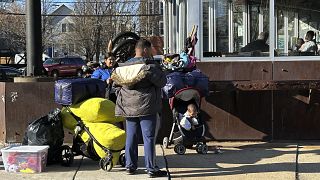


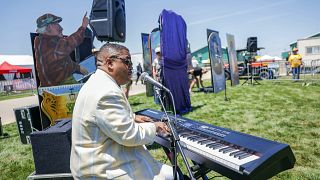
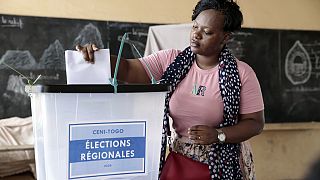
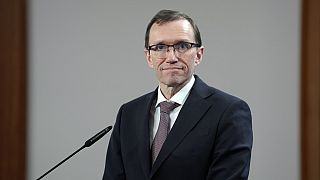
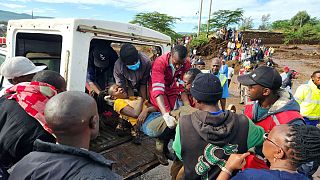
Go to video
Expulsions in Rwanda: genesis of a controversial bill
Go to video
Spain: 2 smugglers convicted for the death of 4 Moroccan migrants
01:29
Nigeria: Muslims mark end of Ramadan with Eid al-Fitr prayers
01:24
Kenya Muslims pray for Palestinians as they mark end of Ramadan
02:20
Morocco: Blood drives keeping supplies steady during Ramadan
02:00
Ethiopia: Addis Ababa celebrates Ramadan with its grand annual Iftar